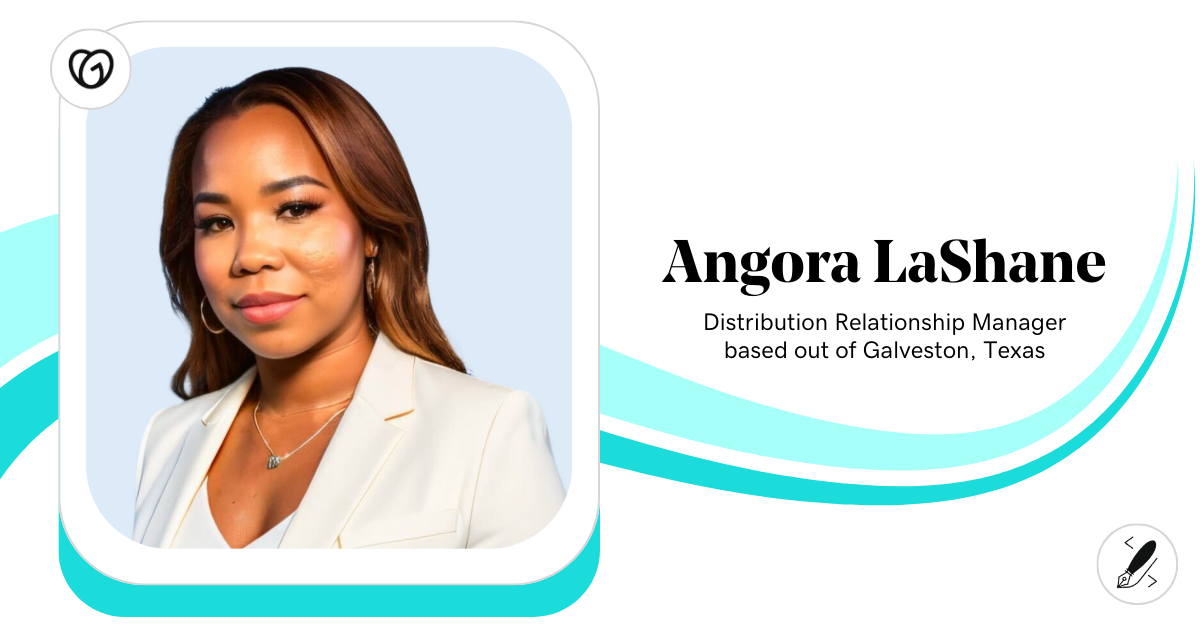Often, our relationship with education is seated squarely in the houses of institutional learning. That is, you get your degree and you're done, shifting focus to create a successful company.
But in the business world, it's no longer enough to earn a degree or complete a training program and consider your education complete.
The rapid pace of technological advancements and the shifting dynamics of the global economy require professionals to continually update their skills and knowledge.
So that's what our focus is here today: the role of the lifelong learner and how you can harness this desire for knowledge in your professional journey.
Most people want to continue learning

A lifelong learner is an individual who is committed to consistently acquiring new knowledge, skills, and experiences throughout their career. This commitment to continuous learning is not only beneficial for the individual but also for the organizations they are part of.
According to Pew Research Center, 73% of adults consider themselves lifelong learners, with 74% indicating they'd participated in activities to advance their knowledge about something that personally interests them in the year prior to the study.
Furthermore, 63% of working adults surveyed said they'd taken a course or gotten additional training in the past year to improve their job skills or expertise connected to career advancement.
And from the employer's side of things, investing in continuous learning can significantly impact employee retention and engagement.
A LinkedIn Learning report found that 94% of employees would stay at a company longer if it invested in their career development. This is particularly crucial considering the half-life of skills is decreasing, with new skills becoming half as valuable in just five years.
The desire for continuous learning reflects the desire of most employees. In fact, a report by Ceridian showed that 86% of employees think employers should provide opportunities for learning and growth within their organizations.
This desire is particularly strong among millennials, who will make up 75% of the global workforce by 2025. For this generation, development in a job is important, with 87% viewing it as such -- 18% higher than non-millennials.
So, the employee motivation is shifting fast, and it's on you to rise to the occasion and provide opportunities for growth wherever you can.
But what perks does this sort of investment bring to a company (besides employee satisfaction)? Let's explore that next.
The benefits of building a culture that values education at work

Lifelong learning is not just a personal journey; it's a strategic investment for businesses. Here are some of the key benefits of promoting lifelong learning in your organization:
You'll build employees' skills and competencies
As employees continually acquire new skills and broaden their knowledge, they naturally develop fresh interests. This ongoing learning process allows for the creation of new objectives, both in their professional and personal lives. The flexibility and holistic growth that come with this process are key contributors to a business's success.
Imparting essential soft skills such as time management, problem-solving, emotional intelligence, and conflict management to employees is crucial.
When team members are proficient in these areas, it simplifies the process of building efficient organizational structures and workflows. As a result, teams can work together more effectively and achieve better outcomes.
You'll foster organic team building and boost loyalty
The process of learning together and spending more time in a shared environment allows employees to understand each other better. Strong interpersonal relationships lead to improved communication, which in turn accelerates the team's ability to achieve desired outcomes.
Investing significantly in your employees, both in terms of time and resources, also instills a sense of loyalty in them.
When employees feel valued and appreciated, their trust in the organization increases, leading to enhanced confidence. This investment in employee education also contributes to reducing staff turnover.
Your business can expand
The continuous learning and upskilling of your employees open up new avenues for your business. With their newly acquired knowledge, you can venture into new areas related to your company's operations, such as marketing, development, distribution, education, and beyond.
You'll become a preferred employer
The job market is competitive so leveraging growth opportunities can give you a competitive edge in attracting potential recruits. It not only enhances your company's reputation but also positions it as a preferred choice for new graduates entering the workforce.
Creating a culture of lifelong learning

Creating a culture of lifelong learning in your organization is a strategic move that can lead to numerous benefits. By providing opportunities for continuous learning, businesses can not only improve employee retention and engagement but also stay competitive.
Here are some strategies to promote lifelong learning in your organization:
Centralizing knowledge with technology
Consider investing in a Learning Management System (LMS). This technology can serve as a hub for all learning resources, providing employees with access to educational materials whenever they need them.
An LMS also allows you to develop or import interactive learning content that can be securely stored in the cloud.
A few tools worth considering include:
- Litmos: Offers both an integrated content library and a custom course builder.
- TalentLMS: A cloud-based platform that enables organizations to create their own branded learning portals.
- Docebo: An AI-based enterprise learning platform featuring a comprehensive library of courses.
Aligning learning with organizational goals
Make sure to communicate the multifaceted benefits of lifelong learning to your employees. By aligning training programs with the broader objectives of the organization, employees can see how their personal growth contributes to the company's success.
Balancing work and learning
Respecting your employees' work-life balance is crucial. If learning initiatives start to encroach on personal time or add to workload stress, employees may disengage.
To prevent this, consider integrating learning and development opportunities into the regular work schedule and provide opportunities for learning that are a part of daily tasks.
You can do this by encouraging employees to learn from each other in informal settings such as group discussions or collaborative projects as well. This could involve encouraging participation in interdepartmental projects or other on-the-job learning experiences.
Fostering a culture of knowledge sharing and inclusivity
Promote a culture where knowledge sharing is valued. This not only strengthens relationships among employees but also allows the expertise of established employees to be utilized effectively, leaving a lasting impact on the organization.
Also, ensure that your learning programs cater to the diverse interests, talents, and development goals of all your employees. The courses you offer should be relevant and beneficial to all departments and individual employees.
Linking learning to performance goals
Engage in discussions with your employees about their current performance and future aspirations. Develop comprehensive professional development plans that are tied to broader organizational goals and potential career progression.
This approach provides employees with a clear path to follow and additional motivation to engage in lifelong learning.
Recognizing and rewarding those who prioritize education
Recognize and reward employees' commitment to continuous learning. This could involve offering certificates of completion that employees can showcase on their professional profiles or public recognition within the organization.
Leading by example
As a leader, your commitment to continuous learning can serve as a powerful motivator for your employees.
Stay informed about new technologies and trends related to your business and share this knowledge with your team. Your example can inspire employees to embrace lifelong learning.
Speaking of leading by example, let's take a look at a few companies now that have prioritized a positive relationship with education in the workplace and what can be learned from their efforts.
3 companies that prioritize education in the workplace (and what you can learn from them)
Trying to conceptualize a life-long learning plan in the workplace feels very abstract. So to remedy this, let's take a look at three companies currently walking the walk when it comes to implementing growth opportunity plans:
1. Palo Alto Networks
This cybersecurity firm has a robust learning and development program that includes a variety of training and educational opportunities.
Employees can take advantage of tuition reimbursement for continued education, access to online learning platforms, and in-house training programs that consist of over 25 courses.
The company's commitment to lifelong learning has resulted in a highly skilled workforce that can stay ahead of the rapidly evolving cybersecurity landscape.
Lesson: Investing in employee development not only enhances the skills of the workforce but also helps in retaining talent and staying competitive in the industry.
2. Dolby Laboratories
Dolby, a company known for its audio, video, and voice technologies, offers a comprehensive learning and development program.
The program includes a mix of in-house training, online courses, and tuition reimbursement for further education. This commitment to lifelong learning has helped Dolby maintain its position as a leader in the industry.
Lesson: A diverse range of learning opportunities caters to different learning styles and preferences, thereby encouraging more employees to participate in the program.
3. Salesforce
Salesforce, a leading customer relationship management (CRM) platform, has a strong culture of learning.
The company provides its employees with access to a wide range of resources, including online courses, in-person training, and conferences. Salesforce's commitment to lifelong learning has been instrumental in its rapid growth and success in the competitive tech industry.
Lesson: Creating a culture of learning within the organization encourages continuous skill development, innovation, and growth.
Continuous education lays the groundwork for future success
The relationship between education and business success is more intertwined than ever before.
As we've explored, fostering a culture of lifelong learning within your organization can yield significant benefits, from enhancing your team's skills and adaptability to boosting innovation and competitiveness.
As an entrepreneur or business owner, your commitment to continuous learning can set the tone for your entire organization.
By embracing this mindset, you can not only improve your own leadership and decision-making abilities but also inspire your team to strive for personal and professional growth.
Disclaimer: This content is provided for informational purposes only, and should not be construed as legal advice from GoDaddy on any subject matter.







